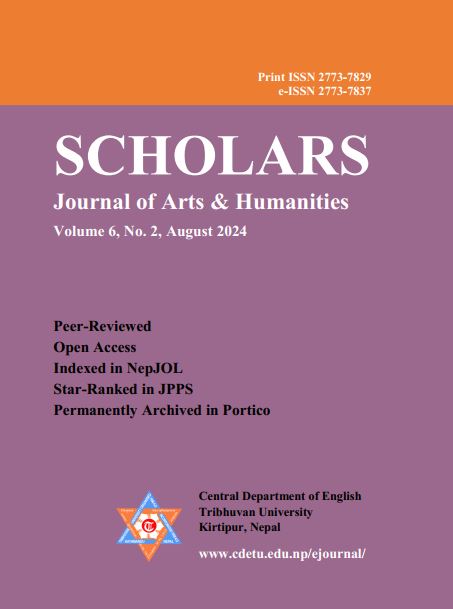Human Cloning in the Posthuman Era: Critiquing Ethical Dilemmas in Kazuo Ishiguro's Never Let Me Go
DOI:
https://doi.org/10.3126/sjah.v6i2.68745Keywords:
Posthuman condition, human clones, identity, resistance, ethicsAbstract
Kazuo Ishiguro's Never Let Me Go displays a dystopian society where the human clones exist solely as ‘carers’ and ‘organ donors’ to prolong the lives of their human counterparts. This advances profound ethical questions about human worth and the ethical implications of biotechnology. This paper explores the clones' defiance and resistance to identity within this ethically oppressive power structure in the posthuman condition. When the clones grapple with the otherness imposed upon them, they connect to the broader societal dynamics of control and freedom. Drawing on Rosi Braidotti's theoretical insights of subjectivity and posthuman ethics, and Homi K. Bhabha's hybridity, the paper analyzes the clones' acts of defiance through memory, subjectivity, artistic expression, and self-awareness. The clones' identities and their interaction within the human power structure reflect the ethical implications of social control that function as tools for the clones to navigate their imposed limitations. The analysis reveals that although the artistic creations of clones ranging from painting to literature to games develop the human-laden values in the clones, the artistic expressions like arts, literature, and paintings also awaken them to subvert and challenge the values imposed on their bodies and lives. The clones' rebellion through symbolic means in a posthuman context provides valuable insights into posthuman studies on scholarship and academic disciplines.
Downloads
Downloads
Published
How to Cite
Issue
Section
License

This work is licensed under a Creative Commons Attribution 4.0 International License.
© Central Department of English, Tribhuvan University and Authors




